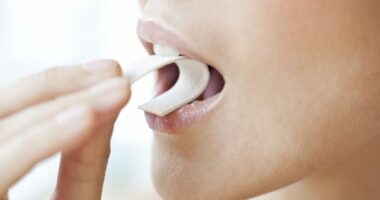Share this @internewscast.com
This study highlights the intricate interplay between environmental exposures, reproductive health, and the aging process, shedding light on potential avenues for preventive measures and enhanced women’s health initiatives.
Middle-aged women facing exposure to toxic metals may encounter a decline in ovarian reserve, marked by a reduction in the number of eggs as they approach menopause. The diminished ovarian reserve has broader implications, potentially linking to health issues such as hot flashes, weakened bones, and an increased risk of heart disease. Diminished ovarian reserve becomes apparent when women possess fewer eggs compared to others in their age group. The consequences of this condition extend to various health problems associated with the menopausal transition, such as hot flashes, compromised bone health, and an elevated likelihood of heart disease.
Menopause As A Natural Process
Menopause, a natural facet of the aging process for women, signifies the cessation of monthly periods. The transitional phase leading up to menopause involves years of hormonal changes, characterized by symptoms like alterations in monthly cycles, hot flashes, or night sweats. Typically commencing between ages 45 and 55, the menopausal transition spans about seven years.
Linking Heavy Metals To Reproductive Aging
Scientific studies have drawn connections between heavy metal exposure, as measured in urine, and women’s reproductive aging specifically diminished ovarian reserve. Common heavy metals include arsenic, cadmium, mercury, and lead, prevalent in drinking water, air pollution, and food contamination. These metals are acknowledged as endocrine-disrupting chemicals.
Impact Of Heavy Metal Exposure On Health
The study, led by Dr. Sung Kyun Park, reveals that widespread exposure to heavy metal toxins could significantly influence various health problems linked to premature ovarian aging in middle-aged women. These health issues encompass hot flashes, bone weakening leading to osteoporosis, heightened risk of heart disease, and potential cognitive decline.
Anti-M llerian Hormone (AMH) As A Biomarker
The research focuses on the relationship between heavy metal exposure and Anti-M llerian hormone (AMH) levels in middle-aged women. AMH serves as a crucial indicator of ovarian health, providing insights into the remaining egg count. Often referred to as a biological clock for the ovaries, lower levels of AMH may signal health risks in middle age and later stages of life.
Study Parameters And Findings
Examining 549 middle-aged women in the Study of Women’s Health Across the Nation (SWAN), the researchers analyzed evidence of heavy metals, including arsenic, cadmium, mercury, or lead, in urine samples. By scrutinizing data from AMH blood tests conducted up to a decade before the women’s final menstrual periods, the study identified a correlation. Women with elevated levels of metal in their urine exhibited lower AMH levels, pointing toward diminished ovarian reserve.
Endocrine-Disrupting Characteristics Of Metals
Certain metals, such as arsenic and cadmium, exhibit endocrine-disrupting characteristics and potential toxicity to the ovaries. This insight underscores the need for comprehensive studies involving a younger population to fully grasp the role of chemicals in influencing diminished ovarian reserve and infertility.
The findings emphasize the intricate interplay between environmental exposures, reproductive health, and the aging process, shedding light on potential avenues for preventive measures and enhanced women’s health initiatives.










